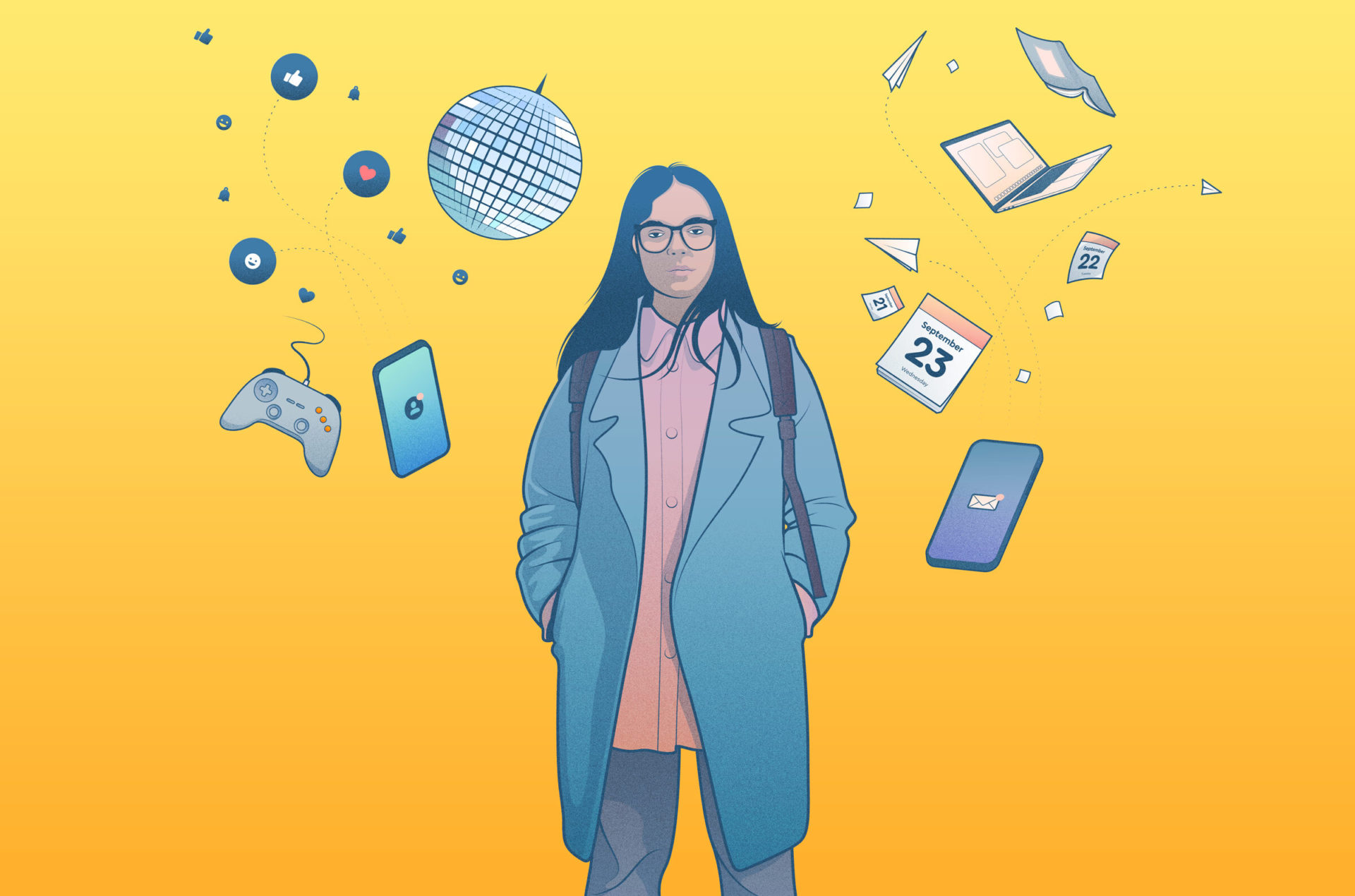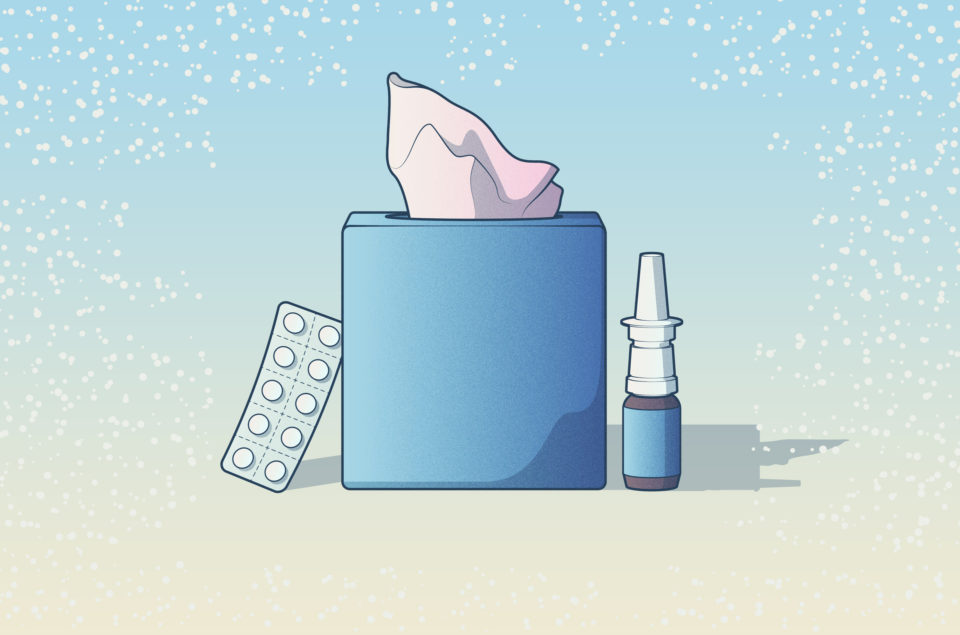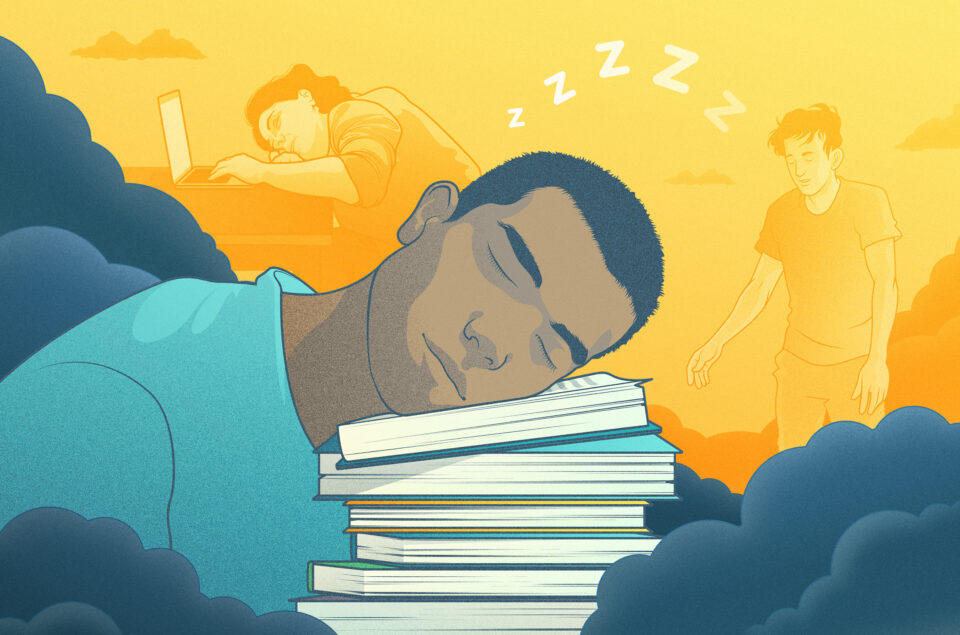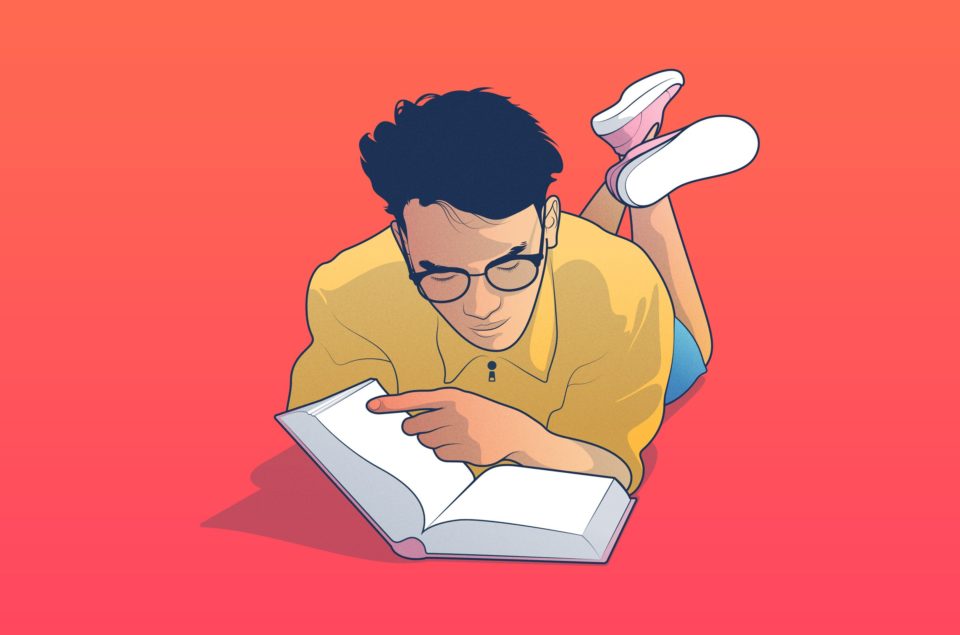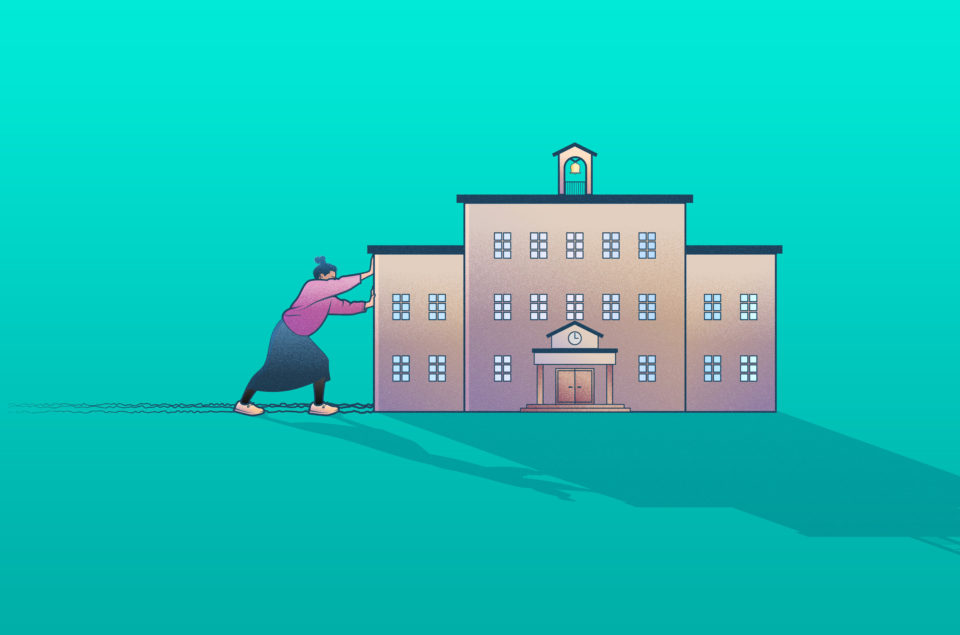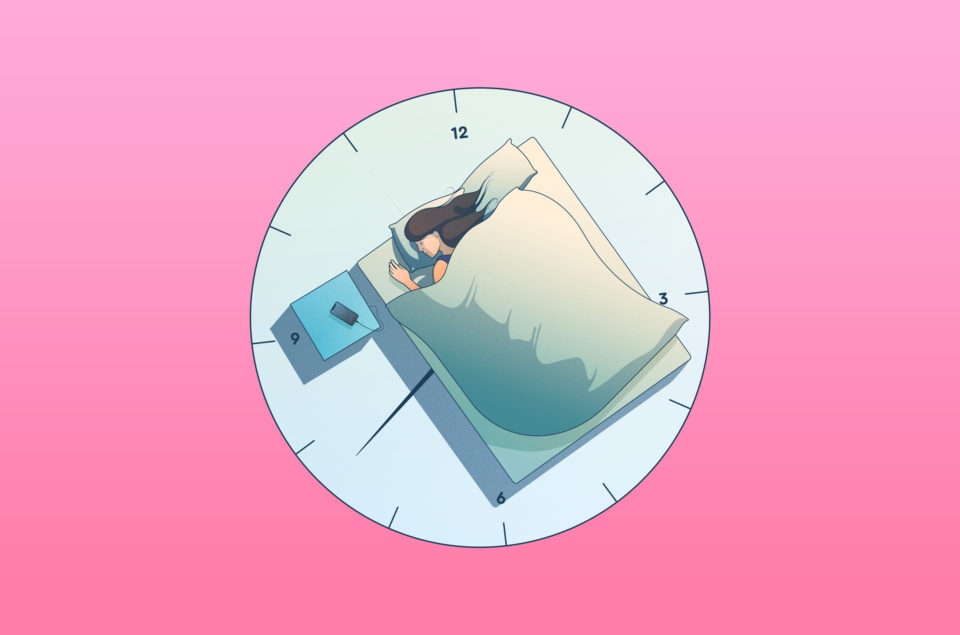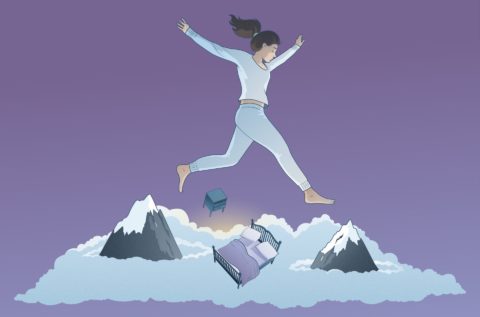It’s early Monday morning. You didn’t get much sleep last night as Friday and Saturday’s late nights wreaked havoc on your body clock. Sunday night, therefore, resulted in a fitful night’s sleep. And now after barely 4 or 5 hours of poor sleep, here you are. If this sounds familiar, you could be experiencing what is referred to as ‘social jetlag’.
In this article, we’ll cover:
- What is social jetlag?
- How does it affect our sleep and health?
- Tips on how you can beat your social jetlag
What is social jetlag?
Social jetlag describes the habit of having two separate, distinct sleeping patterns. It’s often the case that this disparity occurs between very separate weekday and weekend routines, although it can of course occur in other circumstances as well.
So why is this a problem? Your body has a clever built-in system called the circadian rhythm, which signals to your body when it’s time to sleep. Your circadian rhythm is sensitive and if you develop a lifestyle that is often out of sync you could be compromising your sleep health.
For many, this ‘twin life’ results in physical symptoms that are similar to travel jet lag. Consider this: On Friday you take a flight from London to Los Angeles. On Sunday you fly back again. How would that trip make you feel? An educated guess is – not so good!. However, social jetlag is more complicated than a simple shift from one timezone to another. One of the main differentiators between social and ‘normal’ jet lag is how we’re affected by light. When you arrived in LA the sun was coming up and setting at a different time. Your circadian rhythm recognizes this and resets itself. Social jetlag is subtly different in that it involves a change of routine but no change of physical location. The result is trauma and an upended sleep schedule.
Why is it so common?
Modern life is relentless. As a result, we work more and sleep less to meet our social obligations or spend unhealthy amounts of time staring at screens of different sizes. Inevitably, this new reality comes with new risks. Some experts claim social jetlag could be affecting two-thirds of the population, these being the main causes:
- Shift work schedules
- Sleep irregularities – different sleep schedules on weekdays and weekends, for example.
- Incompatibilities between your sleep schedule and chronotype – Going against your chronotype, which is genetically predetermined, can influence the severity of social jetlag. While early birds are less likely to experience it, night owls tend to have more sleep irregularity due to how regular work schedules tend to be less compatible with late chronotypes.
Moreover, as people have slowly returned to pre-pandemic schedules (i.e going back to the office, back to meetings with friends and family…), current research is looking at how this could worsen the levels of social jetlag. Some studies done during the pandemic affirm that social jetlag was reduced by half an hour, and sleep conditions improved among those who had to stay at home. Research also found that chronotypes were also shifted – people were more likely to veer towards a night owl schedule.
How does it affect our sleep and health?
So what are the consequences of social jetlag? As much as we’d like to say that it’s no more serious than perhaps bags under your eyes, and a few occasions of late arrivals at work. Unfortunately, it’s not so simple. Researchers have identified long-term risks with social jetlag to both our sleep and health:
- Some studies suggest social jetlag carries an increased risk of heart disease, obesity or weight gain. For example, just 2 hours of weekly social jetlag can result in higher levels of stress hormones and higher resting heart rate as well asan increased risk of type-2 diabetes and obesity.
- An intense feeling of morning grogginess (sleep inertia) or daytime sleepiness, which can lead to unsatisfactory academic or work performance, and less ability to focus on tasks.
- Increased sleep latency (trouble falling asleep), and sleep apnea.
- Reduced emotional well-being. Social jetlag can cause mood swings,, irritability, or even depression.
The social jetlag sufferer can also be at risk of dismissing health issues caused by social jetlag as ordinary tiredness. In other words, those headaches or light-headed spells could be more easily explained than you thought – we would always suggest consulting a physician if you’re in any doubt.
Reset your circadian rhythm to beat your social jetlag
It would be incorrect to assume that a counter to social jetlag would be to have a nice long sleep. Social jetlag creates a negative spiral that needs to be broken and experts propose that you can’t get over it by planning to catch up on lost sleep by having a long lie-in at the weekend. Instead, they suggest that it’s much more effective to try to adopt new sleeping habits and a routine that is aligned with your circadian rhythm:
1. Keep a consistent sleep schedule
Try to stick to the same wake and bedtime routine every day – including weekends. This way you will sync your sleep schedule with your natural circadian rhythm. However, don’t stress if it’s too much of a temptation to avoid the alarm clock during your days off. Or for that matter,r delay going to bed when you know you don’t have to go to work in the morning. . Life happens. In that case, limit it to a 30-minute or up to an hour’s difference before that consistency in your schedule gets affected. Our experts suggest, sleeping a little earlier and getting up only slightly later than usual. By doing so your lifestyle and circadian rhythm will slowly be re-harmonized.
2. Take care of your sleep hygiene
Having healthy sleep habits is the best remedy against social jetlag, get better sleep and keep your circadian rhythm in check. However, we know that getting rid of old habits is not easy and requires time and small steps. A good start, for example, is creating an optimal environment for sleep in your bedroom, far from distractions, comfortable and with a cool temperature.
It’s also good to know that reducing the risk of social jetlag often requires no more than some simple fine-tuning to your lifestyle. As mentioned above, the most obvious step we can take is where possible,to try and reduce any disparity between different sleep routines. What might be tougher is leaving smartphones, laptops and tablets outside the bedroom and avoiding using them for one hour before bedtime. It’s now accepted wisdom that the digital world and the world of sleep are uneasy bedfellows – if you excuse the pun.
3. Get enough sunlight and exercise
Getting sunlight first thing in the morning is a natural way of telling your body that it’s time to wake up. A 2015 study found that 15 minutes of morning light is enough to regulate your body clock and help you fall asleep earlier on the same night. For those who work night shifts or have to deal with really dark winters, artificial light could serve a purpose in tricking your body and help adjust your circadian rhythm.
On another note, exercising regularly during the morning or early afternoons can also positively impact your sleep and reduce the levels of your social jetlag. However, don’t work out too close to bedtime – as exercise increases your body temperature, which is not optimal just before bed.
4. Say yes to power naps – no to long “siestas”
Sleep experts agree that taking power naps to survive an afternoon dip in energy, can be beneficial for increasing your cognitive function, performance and memory, as well as help reduce stress and sleepiness. However, they shouldn’t exceed 20 minutes as this can disrupt your body clock, increasing sleep inertia (a heavy feeling of grogginess) and causing insomnia at night.
Social jetlag – more a case of when than how much we sleep
The rise of social jetlag indicates that many of us have a body clock that is out of alignment, a problem known to negatively impact health and wellbeing. Furthermore, it reminds us that we often treat sleep in a single-minded way. We hope the quantity of sleep (for example, having a lie-in to erase any sleep debt) will help address any sleep health concern. However, social jetlag also makes it clear that it’s not only how much we sleep, but when we sleep, that has a health implication.
The Sleep Cycle app goes beyond detecting how long users sleep – it helps them to detect and understand how they are sleeping during this time. It provides insights into improving sleep efficiency and quality. All with the goal of helping you to better health, through better sleep!
